Indian Institute of Remote Sensing is one of the top State University in Dehradun, Uttarakhand. Here are the details about the Indian Institute of Remote Sensing - Courses, Fees, Placements, cut off, Ranking, Facilities, and Reviews.
Indian Institute of Remote Sensing Latest Updates
Indian Institute of Remote Sensing, Dehradun is one of the top-ranked university in Uttarakhand, with an excellent academic curriculum, placements, facilities, and esteemed faculty members. Indian Institute of Remote Sensing is admission open 2024 accepting applications for all UG and PG courses for the academic session 2024-25. Indian Institute of Remote Sensing Dehradun provides Scholarships for student's academic excellence and extracurricular achievements, also offers Merit-Based Scholarships for candidates based on merit scores in National & State Level competative exams as well as College Level Test. Interested candidates can apply to their preferred course by visiting the official website.
Here are some other Updates are as follows:
- The Indian Institute of Remote Sensing has recently conducted a placements drive for the 2024 passing out batch students and provides handsome salary packages.
- Indian Institute of Remote Sensing is also accepting applications from International Candidates for UG, PG, Diploma, and Certificate courses.
- Indian Institute of Remote Sensing Dehradun offered upto 100% Scholarships to eligible candidates based on their academic excellence and extracurricular achievements.
- Indian Institute of Remote Sensing, Dehradun has world-class infrastructure facilities for students and staff.
India decided to go to space when Indian National Committee for Space Research (INCOSPAR) was set up by the Government of India in 1962. With the visionary Dr Vikram Sarabhai at its helm, INCOSPAR set up the Thumba Equatorial Rocket Launching Station (TERLS) in Thiruvananthapuram for upper atmospheric research.
Indian Space Research Organisation, formed in 1969, superseded the erstwhile INCOSPAR. Vikram Sarabhai, having identified the role and importance of space technology in a Nation's development, provided ISRO with the necessary direction to function as an agent of development. ISRO then embarked on its mission to provide the Nation with space-based services and to develop the technologies to achieve the same independently.
Throughout the years, ISRO has upheld its mission of bringing space to the service of the common man, and to the service of the Nation. In the process, it has become one of the six largest space agencies in the world. ISRO maintains one of the largest fleets of communication satellites (INSAT) and remote sensing (IRS) satellites, that cater to the ever-growing demand for fast and reliable communication and earth observation respectively. ISRO develops and delivers application-specific satellite products and tools to the Nation: broadcasts, communications, weather forecasts, disaster management tools, Geographic Information Systems, cartography, navigation, telemedicine, and dedicated distance education satellites being some of them.
To achieve complete self-reliance in terms of these applications, it was essential to develop cost-efficient and reliable launch systems, which took shape in the form of the Polar Satellite Launch Vehicle (PSLV). The famed PSLV went on to become a favoured carrier for satellites of various countries due to its reliability and cost efficiency, promoting unprecedented international collaboration. The Geosynchronous Satellite Launch Vehicle (GSLV) was developed keeping in mind the heavier and more demanding Geosynchronous communication satellites.
Apart from technological capability, ISRO has also contributed to science and science education in the country. Various dedicated research centres and autonomous institutions for remote sensing, astronomy and astrophysics, atmospheric sciences and space sciences in general function under the aegis of the Department of Space. ISRO's own Lunar and interplanetary missions along with other scientific projects encourage and promote science education, apart from providing valuable data to the scientific community which in turn enriches science.
Future readiness is the key to maintaining an edge in technology and ISRO endeavours to optimise and enhance its technologies as the needs and ambitions of the country evolve. Thus, ISRO is moving forward with the development of heavy lift launchers, human spaceflight projects, reusable launch vehicles, semi-cryogenic engines, single and two stages orbit (SSTO and TSTO) vehicles, development and use of composite materials for space applications etc. Know more about ISRO's genesis.
Accreditation and Ranking
Indian Institute of Remote Sensing, is recognised by University Grants Commission (UGC) and is affiliated with Andhra University.
Courses Offered
Indian Institute of Remote Sensing, courses are offered at various levels like Postgraduate Degrees i.e Master of Technology (M.Tech) in Remote Sensing and Geographic Information Systems (GIS), Master of Science (M.Sc.) in Geoinformatics, Master of Technology (M.Tech.) in Marine Engineering and so on. You can also find a brief overview of the different courses offered by the university across various disciplines with their specializations on the Course page.
Indian Institute of Remote Sensing, Dehradun campus life
Campus life at Indian Institute of Remote Sensing, Dehradun is just phenomenal. The Indian Institute of Remote Sensing, Dehradun, Uttarakhand and its Campus life provides lots of extracurricular activities like talent in dance, singing, art, literature, anchoring, event management, modelling and drama. Indian Institute of Remote Sensing Dehradun campus life and environment is lively and friendly. The premises have sufficient facilities- medical help, food, and departmental store, etc. to fulfil every need of the students.
At Indian Institute of Remote Sensing campus you get chance to groom your personality, learn something new. Also, All the festivals are celebrated with extreme enthusiasm at Indian Institute of Remote Sensing campus Dehradun so that students feel like home. Sports meet and annual college fests are huge stages for students to showcase their talent. Once you will graduate you will definitely miss the Indian Institute of Remote Sensing, Dehradun campus life.
Infrastructure and Facilities
Hostels
The Institute Hostels boast of providing culture and facilities that make one feel like being at home. The lodging and boarding facilities are provided to all the students/trainees of IIRS in its five hostels - Ganga, Alaknanda, Bhagirathi, Godavari and Cauvery. These hostels are located within its green campus adjacent to the main academic block.
All hostel rooms are well furnished and are allotted on single/double occupancy basis. Indian cuisine is served in a common mess, which is primarily run by the hostel inmates with all infrastructural support provided by the Institute. The rooms for foreign students/ trainees are provided with kitchenette facilities for their own preferences. Altogether, about 200 students/ trainees can be accommodated in IIRS hostels at a given time.
The hostels and the campus are housed with lots of facilities for recreation, such as billiards, basketball, table tennis, lawn tennis, badminton, volley ball, a party hall, an ultra-modern Gymnasium, etc. In all, the international culture, homely atmosphere and ambience, and world-class facilities make living on the campus an unforgettable experience.
Campus Life
Life at IIRS offers quality learning resources along with a wealth of opportunities for social and intellectual engagement. Being a student here is about studying – but it’s also about learning new skills and getting involved in what’s going on outside the library or laboratory. IIRS attracts students not only from around the world, creating a culturally rich and diverse student community. Services for students include an experienced and committed faculty
As a truly multicultural city, IIRS, Dehradun caters for students from all cultures and backgrounds and has places of worship for every major religion and faith.
International Collaborations
IIRS has collaborations with many reputed international organizations for capacity building, research and faculty exchange. The organizations with which IIRS has/had significant collaborations are ITC, IHE (International Institute for Infrastructural, Hydraulic and Environmental Engineering) and Wageningen University in The Netherlands; ITTO (International Timber Research Organisation); UNESCO (United Nations Education & Scientific Cooperation Organisation); WMO (World Meteorological Organisation); ADPC (Asian Disaster Preparedness Centre); and NGI (Norwegian Geological Institute).
Special mention may be made of its collaboration with ITC, The Netherlands, which spans over four decades, from 1966 to date. The focus of the present phase of collaboration is to conduct Joint Education Programmes (JEP). Under the JEP, two Masters's Degrees (M.Sc.) and two joint-logo Postgraduate Diploma programmes are conducted at IIRS in two specialisations – Geoinformatics and Natural Hazards & Disaster Risk Management.
Research Project Monitoring Department
Research Project Monitoring Department supports the mandated objective of IIRS by taking care of the sponsored research (RESPOND) activities of IIRS. Sponsored Research activities at IIRS are carried out under various umbrellas including, RESPOND, Space Technology Cells (STC), Regional Academic Centres for Space (RAC-S), Space Technology Incubation Centres (S-TIC), YUKTI Sanchita, Atal Tinkering Labs. The main objective of the sponsored research programme of ISRO at IIRS is to establish strong links with premier academic institutions in the country to carry out research and developmental projects which are of relevance to IIRS & and derive useful outputs of such R&D to support IIRS programmes.
Central Library
IIRS Library started with a small collection of books and journals. But now the library collection is one of the best collections in the field of Remote Sensing and its application areas. The Library is dedicated to serving the information needs of the scientists, researchers and students of the Institute. Day by day IIRS Library is growing in terms of services and the latest collections in the field of Remote Sensing and its applications.
Aims, To collect, organize and disseminate relevant information on remote sensing and its applications in different fields. To fulfil the information needs of faculties, researchers and students of IIRS. To respond to the information needs of scientists, researchers, Government departments and Institutions.
Collection
IIRS Library has a wide collection of documents in the form of Books, Proceedings, Theses, Reports etc. to meet the requirements of its users.
Books & Monographs - 15335 Reference Books – 275 Dictionaries- 100
Encyclopedias – 35
Atlases- 25
Conference Proceedings- 340
Technical Reports- 1450
Theses/Dissertations – 1767
Multimedia CD- 142
Current Journals/Serials - 96 (Print)
Online Journal - 434
Journals (Back Volumes) - 6606
Databases:
IEEE Explore Digital Library
SPIE Digital Library
AIAA
Budget Planning and Monitoring Department
With the increasing responsibilities and mandates of the institute, it is pertinent to mention that the budgetary allocations have increased more than three times in the past four financial years. This has spearheaded a gamut of techonmanagerial and financial activities and other critical correspondences with Hqs. BPMD is one of the youngest departments created in IIRS to take care of pertinent budget planning and monitoring related formalities and procedures in the Institute.
Placement
Indian Institute of Remote Sensing (IIRS) under the Indian Space Research Organisation (ISRO), Department of Space, Govt. of India is a premier training and educational institution established in 1966 and committed to preparing Professionals in the field of Remote Sensing, Geoinformatics and GPS Technology for Natural Resources, Environment and Disaster Management. The Institute is also the host of the Centre for Space Science & Technology Education in Asia and the Pacific (affiliated with the United Nations) and conducts International Training Programmes.
IIRS, Dehradun has potential candidates who can suit your organization to work as Data Scientist /GIS Engineer/Geomatics Engineer or in a similar job profile which requires RS and GIS operational skills. Our academic curriculum is regularly updated to ensure that the students are imparted with the latest knowledge to suit a globalized working environment. We spare no efforts to groom our students, not only in their chosen discipline but also broaden their mindsets and create positive attitudes thus equipping them with all qualities to make them an asset to whichever institute/organization they work with. IIRS contacts various companies for placements of their students enrolled in long-term courses. Placement requirements are shared among students throughout the year as soon as advertised.
The training and education programmes conducted by the Institute include i) Post-graduate Diploma (PGD) in Remote Sensing and GIS in ten disciplines, ii) M.Tech. (RS & GIS) in nine disciplines conducted in collaboration with Andhra University, Visakhapatnam and iii) M.Sc. and PG Diploma courses in Geoinformatics conducted in collaboration with the Faculty of Geo-information Science & Earth Observation (ITC) of the University of Twente (UT), The Netherlands. The institute also conducts various other courses, namely i) Certificate programmes (including NNRMS-ISRO sponsored programme for University faculty), ii) Awareness programmes, and iii) Special on-demand/tailor-made courses.
The Placement Brochure includes the skills acquired by IIRS students through training/education and project work that they have carried out as a part of their Course Curricula. I am sure that the Placement Brochure shall be helpful to the Geospatial Industry, Academia and other Institutions to pick the talent and also provide opportunities to the course participants for their placement.
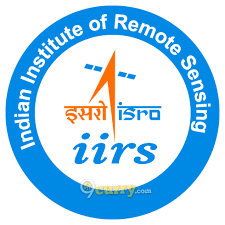
 Dehradun, Uttarakhand
Dehradun, Uttarakhand
 Collage
Collage
 1966
1966
 UGC
UGC
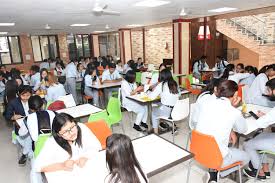
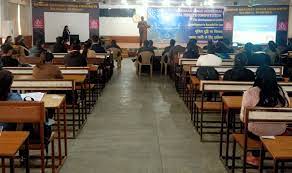
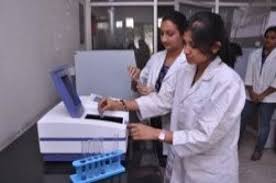

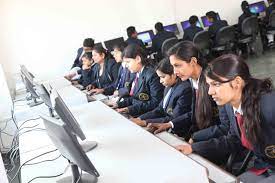
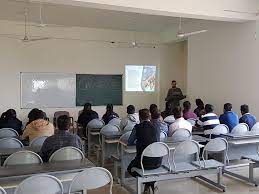
![Dev Bhoomi Uttarakhand University - [DBUU], Dehradun](https://cdn.universitykart.com//Content/upload/admin/lsfohlb4.1j1.png)



 back
back